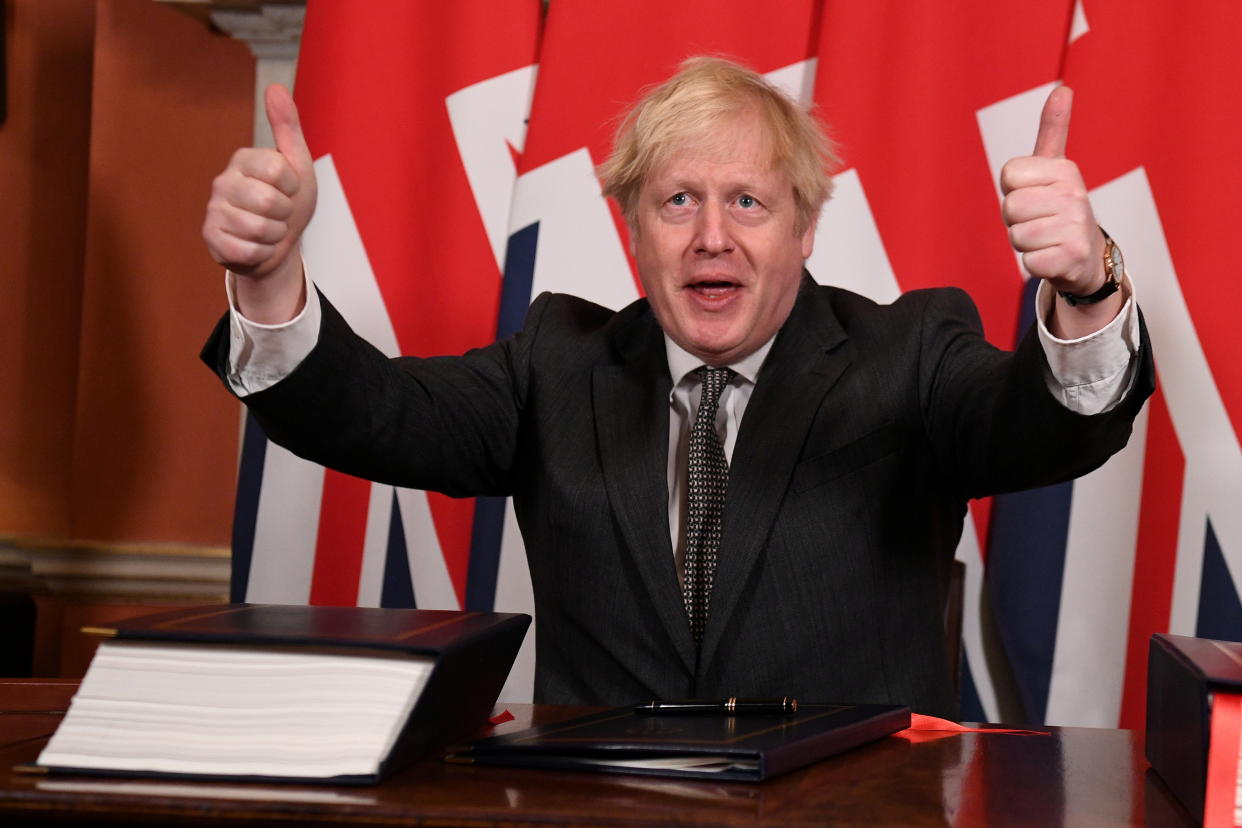Boris Johnson’s Brexit trade deal ‘not delivering for most UK businesses’

More than three quarters (77%) of UK businesses have admitted that the Brexit trade deal, which is applicable to them, is not helping them increase sales or grow.
According to the latest data from a survey of more than 1,168 businesses on Wednesday, there are significant challenges for UK firms trying to use the Trade and Co-operation Agreement (TCA).
As many as 56% of firms face difficulties adapting to the new rules for trading goods, while almost half (45%) find it hard to adapt to the new rules for trading services. A similar number (44%) reported difficulties obtaining visas for staff.
The TCA was agreed on Christmas Eve in 2020 to allow tariff-free trade with the European Union once Brexit took effect.
But a high proportion of businesses say they are still having major problems trying to use the deal to trade with Europe.
Read more: Brexit: UK urged to reveal economic impact of trade deals
On the back of this, the British Chambers of Commerce (BCC) has sent the government a report setting out solutions to many of the issues.
The survey also found that alongside problems with the TCA, four in five (80%) firms had seen the cost of importing increase since January, more than half (53%) had seen their sales margins decrease and almost three quarters (70%) of manufacturers had experienced shortages of goods and services.
“Customs on both sides of the EU border seem to have a separate set of rules to be able to charge different amounts for the same thing. We don't know until it's too late what these costs are,” the report said.
A manufacturer in the East Midlands said: “Brexit has been the biggest ever imposition of bureaucracy on business. Simple importing of parts to fix broken machines or raw materials from the EU have become a major time-consuming nightmare for small businesses, and Brexit related logistics delays are a massive cost when machines are stood waiting for parts.
“We used to export lesser amounts to the EU, but the bureaucracy makes it no longer worthwhile.”
Watch: How does inflation affect interest rates?
Meanwhile others said they were now “uncompetitive” with their EU customers and that goods have gone missing when they reach customs control.
Shevaun Haviland, director general of the BCC, said: “Businesses want political leaders on both sides to move on from the debates of the past and find ways to trade more freely.
“This means an honest dialogue about how we can improve our trading relationship with the EU. With a recession looming we must remove the shackles holding back our exporters so they can play their part in the UK’s economic recovery.
“If we don’t do this now then the long-term competitiveness of the UK could be seriously damaged. It is no coincidence that during the first 15 months of the TCA we stopped selling 42% of all the different products that we used to.”
Read more: UK borrowing hits record high of £22bn in November
The BCC’s TCA Two Years On report sets out 24 recommendations to increase UK-EU trade. Its top five proposals for quick action are:
Create a supplementary deal with the EU which either eliminates or reduces the complexity of exporting food for SMEs.
Establish a supplementary deal, like Norway’s, that exempts smaller firms from the requirement to have a fiscal representative for VAT in the EU
Allow CE marked goods and components to continue to be used in Great Britain after 2024.
Make side deals with the EU and member states to allow UK firms to travel for longer and work in Europe.
Reach an agreement on the future of the Protocol on Ireland/Northern Ireland with the European Commission in the early months of 2023, to stabilise our trading relationship.


